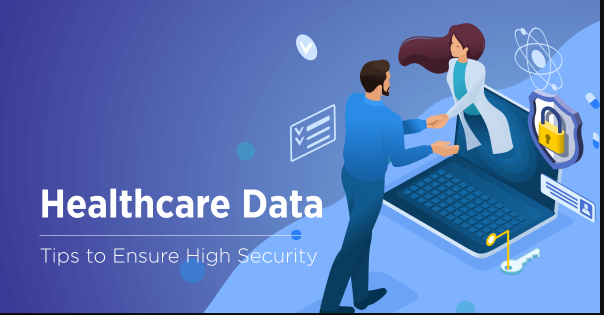When Lisa logged into her email one morning, she noticed a message from what appeared to be her local hospital. The subject line read, “Urgent: Verify Your Health Records Now.” Concerned that something was wrong, she quickly clicked the link in the email, which led to a website resembling her hospital’s portal. Without thinking twice, she entered her login credentials.
What Lisa didn’t realize was that she had just fallen victim to a phishing scam. The email wasn’t from her hospital at all, it was from a cybercriminal. Within hours, her sensitive health information, including past medical history and insurance details, was compromised. It wasn’t until Lisa noticed unusual activity on her medical account and received a fraudulent bill for treatments, she never received that she realized what had happened.
Lisa’s story is a cautionary tale, but it also highlights the importance of understanding data security and taking proactive steps to keep health information safe. With the growing digitization of healthcare, protecting sensitive information is more critical than ever.
Why Does Health Information Need Protection?
Like Lisa’s story illustrates, health information isn’t just about medical records. It contains deeply personal details—addresses, social security numbers, insurance information, and even payment details—all of which can be used for identity theft or fraud. Once stolen, this information can be challenging to recover, and the consequences can linger for years.
For many, health data also carries emotional value. It represents trust between patients and their healthcare providers. When that trust is broken through a data breach or scam, it can leave lasting damage, not just financially but emotionally.
Common Risks to Your Health Information
Lisa’s experience sheds light on some of the most common risks to personal health data:
- Phishing Scams: Fake emails or texts designed to trick individuals into sharing their login credentials, as Lisa experienced.
- Data Breaches: Large-scale attacks on healthcare systems that expose the data of thousands or even millions of patients.
- Unsecure Devices: Using outdated software or devices without strong protections makes accessing sensitive information easier for hackers.
- Third-Party Apps: Many health and fitness apps collect personal information’s with no strong security measures in place.
Steps to Protect Your Health Information
After her ordeal, Lisa learned how to secure her information and prevent future incidents. Here’s what she and others can do to stay safe:
- Verify Before You Click
If you receive an email or text claiming to be from a healthcare provider, verify its authenticity before clicking links or entering personal information. Call the provider directly using their official contact number. - Use Strong Passwords
Lisa now uses strong, unique passwords for all her online accounts, including patient portals and health apps. She also invested in a password manager to keep them secure. - Enable Two-Factor Authentication (2FA)
Adding an extra layer of protection, such as a verification code sent to her phone, has made Lisa’s accounts much harder to breach. - Keep Software Updated
Outdated software often has security vulnerabilities. Lisa ensures her phone, computer, and apps are always updated to the latest versions. - Be Cautious on Public Wi-Fi
Lisa avoids accessing sensitive accounts on public Wi-Fi. If she must, she uses a Virtual Private Network (VPN) to encrypt her data. - Monitor Your Records
After her experience, Lisa began regularly checking her medical records and insurance claims for unusual activity. This habit helps catch any unauthorised use of her information early.
The Role of Healthcare Providers
While individuals like Lisa play a vital role in protecting their information, healthcare providers are equally responsible. Hospitals, clinics, and insurers invest in encryption technology, secure servers, and rigorous training for employees to minimize risks. Regulations like NHS, ICO in the U.K. hold organisations accountable for how they handle and protect patient data.
Patients can take an active role by asking questions:
- How is my data stored?
- Who has access to it?
- What steps are in place to secure it?
When patients and providers work together, they create a stronger defense against potential breaches.
The Role of Awareness in Data Security
Staying informed is one of the most powerful tools you have in protecting your health information. Awareness of the risks, understanding how your data is used, and recognizing potential red flags can help you stay one step ahead of cyber threats.
It’s also helpful to discuss security measures with your healthcare providers. Ask how your information is stored, who has access to it, and what steps are taken to keep it safe. When healthcare providers and patients work together, they create a stronger shield against data breaches and misuse.
Lessons from Lisa’s Story
Lisa’s experience was a wake-up call, but it didn’t define her. By learning from the incident and adopting better habits, she regained control over her data and peace of mind. Her story is a reminder that while threats are real, they can be managed with awareness, vigilance, and simple precautions.
The digital world has made managing health more convenient, but it has also introduced new risks. Whether it’s through phishing scams, data breaches, or unsecure apps, personal health information can be vulnerable. But by staying informed and proactive, anyone can take steps to protect their most sensitive data.
Conclusion
Lisa’s experience serves as a powerful reminder that safeguarding your health information is not just about technology—it’s about the actions you take every day. Protecting your data starts with understanding the risks and taking proactive steps to minimise them. Simple practices like being cautious when sharing information, asking questions about how your data is handled, and staying alert for potential threats can make a big difference.
The digital healthcare landscape offers incredible convenience, but it also requires you to stay informed and vigilant. By prioritising the security of your personal health data, you can confidently use modern tools and services without fear of misuse.
Your health information is a deeply personal part of your identity, and it’s worth every effort to keep it private and secure. Taking these steps now ensures you can focus on what truly matters—your health, well-being, and peace of mind—without worrying about your sensitive information being compromised.
For more educative and informative articles to help, click through our blog page.






